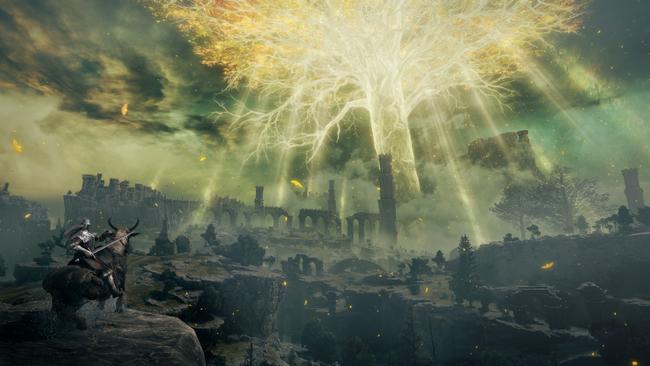
Want the best Elden Ring experience? Buy a notebook
On RPG Site, we like helping players out. Sometimes that means reviews or previews, to help clue you in as to what’s worth your money. News, to see what’s coming down the pipe. And, of course, guides - to help you minute-to-minute with things you might be stuck on. But, let us give you a piece of Elden Ring advice? Forget the guides - buy a notebook.
We will have Elden Ring guides, of course. Even before release, members of the RPG Site team have collectively played Elden Ring for well over 100 hours. For some aspects of the game guides will be invaluable. For the most natural experience, though, you’ll want a notepad - or a very good memory - just for tracking side quests.
Side content is nothing new in FromSoftware’s hyper-difficult Souls-style action RPGs. But in Elden Ring they, along with everything else, are turned up to eleven. With the game set in an expansive open world that you can access huge amounts of right from the moment you first start out, characters are scattered to the winds across this land. A few set up camp in specific locations, such as ‘Roundtable Hold’ a safe zone and central hub for the Tarnished - but generally speaking, the characters you’ll be meeting are found anywhere and everywhere.
You might be galloping through the ruined world when you hear someone calling out, or howling from a rooftop. An NPC might be disguised as a tree, or hidden down a deep hole. Even in dungeons, a friendly face might be lurking in a side room. Each you interact with has purpose, both in terms of fleshing out Elden Ring’s world and in giving you things to do.

The curious thing about all of this is that Elden Ring’s approach to quests is minimalist. Despite being an open world title, this game eschews the tropes. There’s no quest log, checklist, or quest descriptions. NPCs can place waypoints on your map, but it only happens on a few very specific occasions. Usually, you'll just be told where to go in more vague terms - with a map heading, or a location name. With this information you can place markers and beacons of your own, and they'll be your waypoints. The point is that you’re largely on your own.
This is where the notebook comes in. Elden Ring is relentless and unforgiving. That goes for combat, but also for things like quests. NPCs appear, drop knowledge, and then disappear. Even if they stay put, it’s often impossible to get them to repeat the instructions and clues they offer the first time you speak. Characters say where they’re going, what they need, who they’re allied with, and more. It’s imperative that you pay attention and remember this information.
Sometimes, if you’re lucky, an inventory key item will offer clues or information that can be scrutinized later. Often, though, there’s no such assistance. Missing a step in the beats of a character - by missing the next place they spawn, for instance - can easily nix a quest line in an instant.
On an average play-through, some characters will just disappear, never to be heard from again - and that’s natural, for better or worse. Elden Ring’s world is seemingly governed behind-the-scenes by a complex web of triggers and world states that determines who is where at any given time. The world is in constant flux. There’s plenty of content in Elden Ring, so you’ll never feel it’s lacking due to disappearances - but you might be sad to not see the resolution to a specific storyline.

Many of these stories offer some of the best moments and most intriguing pieces of story in Elden Ring, - plus, they break up the natural flow of the story-imperative tasks by allowing you to do things such as enter the service of a powerful witch (with an ulterior motive, of course), or join a Dark Brotherhood-like cult of assassins. These quests often weave back into the main narrative, providing assistance, alternative routes, and other twists during more story-significant developments.
The only way around this is to keep stringent track of what’s going on - though there’s so much to track, and often so much time can pass between beats in any given sub-plot that it’ll be difficult to keep in your brain. While we can’t tell you what all of the content triggers in the game are - and expect it will be months before fans and wikis have puzzled everything out - the best thing that you can do in your play-through is keep track of everything you’re asked to do, and the most important words of any interesting NPC.
You might wonder - why not have a quest log? And that’s an interesting debate. Should there be one? It’s difficult to say. It’s part of the design of the game, though - it makes the world feel open and unpredictable. But, certainly, it’ll help you a lot - more than any online guide - if you’ve got notes. So grab a physical notepad, an app on your phone, a google doc - and be ready to document your adventure.